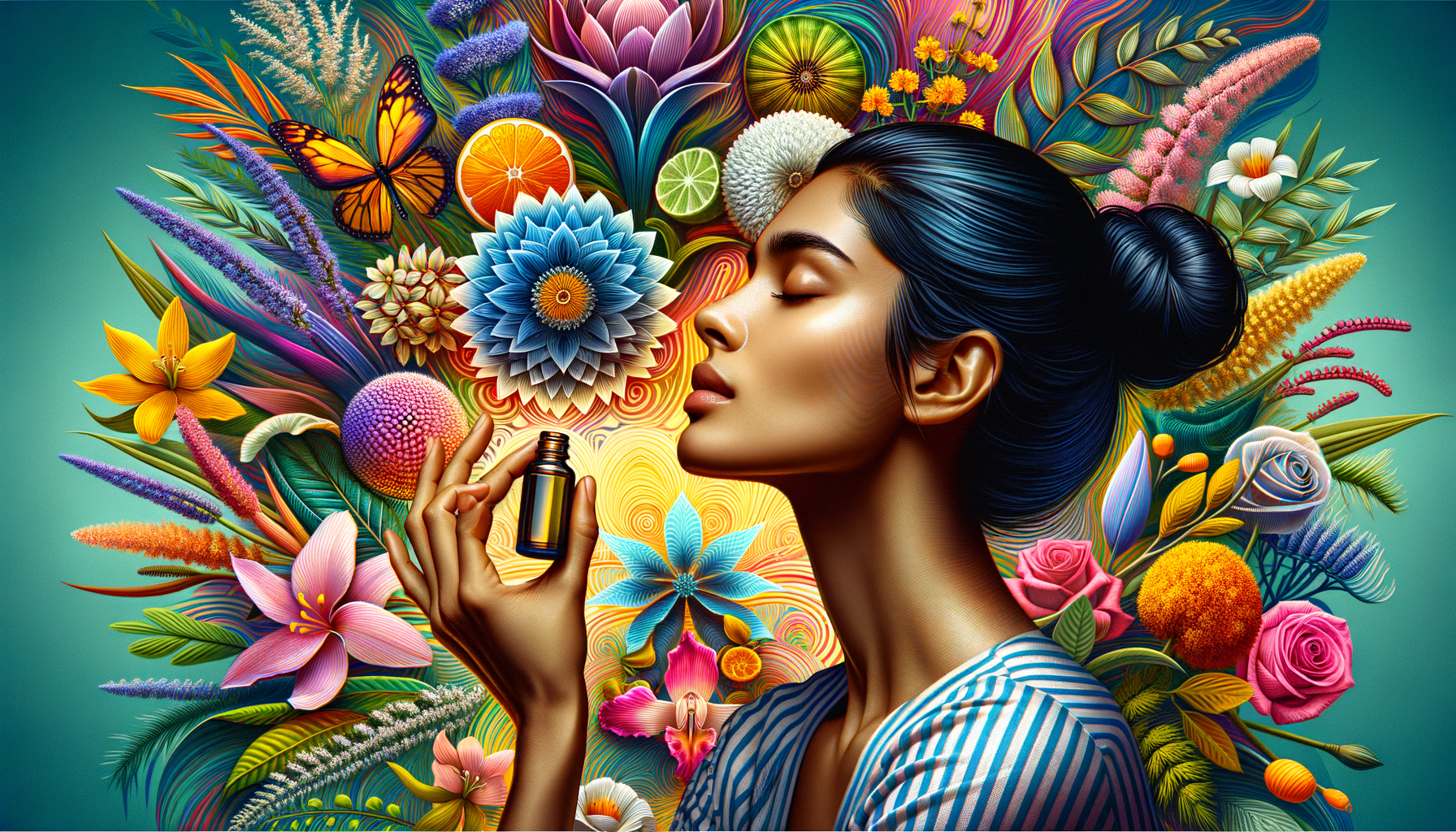The Science Behind Aromatherapy: Unveiling the Power of Essential Oils
Introduction
Welcome to the world of aromatherapy! In recent years, the use of essential oils has gained immense popularity as people seek natural and holistic approaches to enhance their well-being. Aromatherapy, the therapeutic use of essential oils, offers a wide range of benefits for physical, mental, and emotional health. In this blog post, we will delve into the science behind aromatherapy, exploring how essential oils work and their potential to transform your wellness journey.
Aromatherapy Benefits
Aromatherapy offers a myriad of benefits that promote overall wellness. Essential oils, derived from various plant sources, have unique properties that can positively impact both the body and mind. From reducing stress and anxiety to enhancing mood and relaxation, aromatherapy is a powerful tool for improving well-being.
Incorporating aromatherapy into your daily routine can result in several benefits, including:
- Reduced stress and anxiety
- Enhanced mood and relaxation
- Boosted immune system
- Improved sleep quality
- Relief from headaches and migraines
- Accelerated healing and pain relief
Essential Oils Explained
Before diving into the science behind aromatherapy, let’s understand what essential oils are. Essential oils are natural extracts obtained from plants, capturing their therapeutic fragrance and properties. These oils are extracted through methods such as steam distillation, cold-pressing, or solvent extraction.
There are various types of essential oils, each with its own unique chemical composition and benefits. Common essential oils include lavender, peppermint, lemon, eucalyptus, and tea tree. These oils are renowned for their potent properties that can positively impact our well-being.
The Science of Aromatherapy
Aromatherapy is not just a pleasant fragrance; it is rooted in scientific principles. Our sense of smell, or olfaction, plays a crucial role in aromatherapy. When we inhale essential oils, the molecules enter our nasal passages, stimulating a response in the olfactory receptors. This response triggers the limbic system, the part of our brain responsible for emotions, memory, and behavior.
The chemical composition of essential oils plays a vital role in their therapeutic effects. Essential oils are rich in volatile organic compounds (VOCs), including terpenes, alcohols, and ketones. These compounds interact with receptors in our body, promoting various physiological responses.
Power of Essential Oils
Essential oils are potent substances that require careful handling. The effectiveness of essential oils is directly related to their concentration and purity levels. It is crucial to choose high-quality essential oils to reap their full benefits.
Many essential oils have antimicrobial and antifungal properties, making them ideal for cleaning and purifying the air. Additionally, specific essential oils, such as lavender and chamomile, have calming and soothing properties that can aid in relaxation and sleep.
How Aromatherapy Works
There are several methods of using essential oils for aromatherapy. Inhalation is one of the most popular methods, where you can directly inhale the aroma from a bottle or use a diffuser to disperse the scent throughout the room. Topical application involves diluting essential oils with a carrier oil and applying them to the skin.
When inhaled or applied topically, essential oils are absorbed into the bloodstream, allowing their therapeutic properties to take effect. It is essential to use proper dosages and dilution ratios to ensure safe and effective usage.
Unlocking Essential Oils’ Potential
To maximize the benefits of essential oils, you can create synergistic blends by combining different oils. This way, you can enhance their effects and create a personalized aroma that suits your needs. However, it’s crucial to note that individuals may have varying sensitivities to specific oils, so experimentation is key to finding the right combination for you.
Furthermore, the time of day and your intentions can influence the desired effects of aromatherapy. Some essential oils are energizing and uplifting, while others are calming and grounding. By selecting oils based on your current needs, you can unlock their full potential.
The Healing Properties of Aromatherapy
Aromatherapy is not only a pleasant sensory experience but also offers healing benefits for various health conditions. Research studies have shown the efficacy of essential oils in managing pain, reducing inflammation, and supporting overall well-being.
Some specific health conditions that can be improved with aromatherapy include headaches and migraines, joint and muscle pain, respiratory issues, insomnia and sleep disorders, anxiety and stress-related conditions, and low mood and depression.
Essential Oils and Their Therapeutic Effects
Different essential oils have unique therapeutic effects, making them valuable assets in aromatherapy.
For example, lavender oil is renowned for its calming properties, promoting relaxation and improved sleep quality. Citrus oils, like lemon and orange, have uplifting and energizing effects, making them ideal for boosting mood and reducing anxiety. Peppermint oil has analgesic and anti-inflammatory properties, providing relief from headaches and muscle pain.
The Chemistry of Essential Oils
The therapeutic effects of essential oils can be attributed to their complex chemical compositions. Essential oils contain various compounds such as terpenes, ketones, alcohols, and esters, each contributing to their unique characteristics.
For example, the terpene linalool found in lavender oil has sedative effects, while the menthol present in peppermint oil provides its cooling and analgesic properties. Understanding the chemistry of essential oils can help you select the right oils for specific purposes.
Aromatherapy and the Mind-Body Connection
Aromatherapy is not just about physical well-being; it also taps into the mind-body connection. Essential oils have the power to influence our emotions, mood, and overall mental state.
When used in meditation or mindfulness practices, essential oils can deepen relaxation and promote a sense of peace and focus. The scents of certain oils, such as rose or bergamot, can evoke feelings of joy and harmony.
Conclusion
Aromatherapy, with its deep-rooted scientific principles and transformative potential, is a powerful tool for wellness and personal development. By understanding the science behind aromatherapy and exploring the benefits of essential oils, you can embark on a journey of holistic well-being.
Remember, essential oils are potent substances, so it’s essential to use them responsibly and consult with a healthcare professional if you have any specific medical concerns. Experience the power of aromatherapy and unlock a world of wellness and vitality.
P.S. Don’t forget:
Reserve your tickets for our upcoming event on February 3, 2024, where you can connect with like-minded individuals and learn from experts in the field of mindset coaching.
Join us for an immersive and transformative event that will empower you to live a happier, healthier, and more fulfilling life. Together, we can build a stronger society through the power of community and personal growth.
For more information and to reserve your tickets, visit our website.
Don’t miss this opportunity to experience the profound effects of mindset coaching and connect with leading experts in the wellness industry. We look forward to seeing you there!
Contact us at 250-859-8434 or email us at [email protected] for any inquiries.
Follow us on social media:


